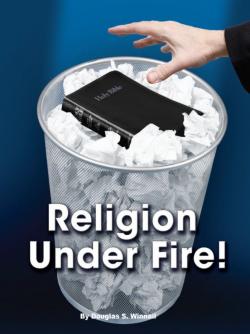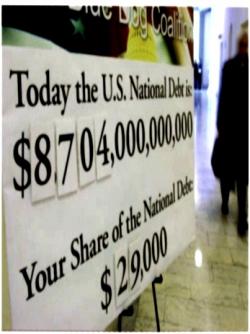The Tomb of Jesus?
Archaeologists recently announced an amazing discovery—a tomb which, they say, contained the bones of Jesus and several members of His family. What does this "discovery" actually reveal?
Did you watch The Lost Tomb of Jesus—the recent Discovery Channel special produced by filmmakers James Cameron (of Titanic fame) and Simcha Jacobovici? It caused quite a stir when it aired, exploiting society's current fascination with the Da Vinci Code spirit of "creative history."
The show points us to a tomb near Jerusalem, which was thought to be uninteresting archaeologically when it was discovered in 1980. The tomb contained ossuaries (coffins, or "bone boxes") bearing a few names shared by Jesus' family members—and one labeled "Jesus [Yeshua] son of Joseph." The filmmakers say this is the tomb of Jesus' family, and that He was buried there—definitely not resurrected from the dead.
What are we to make of such a claim? Well, for starters, scholars and other experts quickly pointed out that the show's assemblage and interpretation of the facts represented bad science and pseudo-archaeology. Even the probability calculations were questionably applied.
In fact, the program's loose science and slipshod "archaeology" aside, the arguments that have proven the truth of Christianity for centuries are as strong as ever, and suffered not even a dent from this stunt.
Imagine the scene. A hush spreads across the court of King Agrippa, as the Apostle Paul winds down his defense, discussing the crucifixion and resurrection of Jesus Christ: "This thing was not done in a corner. King Agrippa, do you believe the prophets? I know that you do believe." Agrippa then says to Paul, "Very passionately delivered, Paul, but your tale is a fantasy. The tomb of this man you say rose from the dead is there, this day, outside Jerusalem! His bones rest alongside those of his mother and the rest of his family. Why you persist in this horrible and perverse lie to your own destruction is beyond me! Festus is right: you truly are mad!"
However, that is not how the exchange between Paul and Agrippa really happened; you can read for yourself how Luke, the first century Church historian, recorded it in Acts 26:22–32. Even in the white-hot heat of terrible first century persecution, when so many were desperate to stamp the young Church out, no one was able to produce a body—let alone an entire family tomb—to refute the Christians' persistent claim of Jesus' resurrection. No one! No matter how passionately the Church's enemies searched, no matter how viciously they interrogated the many Christians they arrested—there was simply no body to be found to demonstrate the Christians' "lie."
Paul and the other apostles would have become laughingstocks if Jesus' tomb and body could have been produced. Instead, history regards them as men who "turned the world upside down" (Acts 17:6), who changed the course of history forever.
Is it reasonable to believe that the religious and political authorities of Jesus' time could not—with all the power and resources at their disposal—discover the location of a family tomb located in the very area from which this disruptive new message was spreading? Are we to believe that Jesus' original followers voluntarily suffered unimaginable torments—even violent deaths—to proclaim the message of the risen Christ if they knew the message was a lie?
The men who produced The Lost Tomb of Jesus want you to believe so—but believing their scenario requires far more faith than a bad-science-but-ripping-yarn television special deserves.
The recipe for The Lost Tomb of Jesus consists of a pinch of fact, surrounded by a heaping cup of fanciful storytelling. Yet not even the truth within that pinch casts any doubt on the truth that has defeated all challengers for nearly two millennia: the tomb of Jesus Christ was empty. He is risen, and He lives today.
If you are interested in really proving the truth of the Bible, please request our free booklet The Bible: Fact or Fiction? Do not take anyone's word for it—prove it for yourself!






